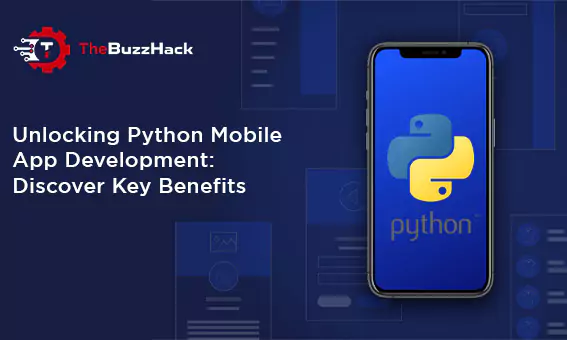
Unlocking Python Mobile App Development: Discover Key Benefits
In the dynamic landscape of the digital era, mobile applications have evolved into indispensable tools that offer unparalleled convenience, connectivity, and endless opportunities for businesses to engage with their customers. Amidst the plethora of programming languages available, Python has emerged as a leading choice for mobile app development, owing to its simplicity, versatility, and extensive library ecosystem.
Understanding Python Mobile App Development
Python mobile app development encompasses the creation of mobile applications utilizing the Python programming language. Renowned for its high-level design, simplicity, and readability, Python finds its primary application in web development but has also proven effective in building mobile apps. There are distinct approaches to Python mobile app development:
- Native App Development: Python can be harnessed for creating native mobile apps tailored for specific platforms, such as Android or iOS. For Android development, frameworks like BeeWare, Kivy, or PySide are compatible with Python, while for iOS development, tools like PyObjC or BeeWare can be employed.
- Hybrid App Development: Python also lends itself to hybrid app development, where a unified codebase is used to craft apps compatible with multiple platforms. Frameworks like Kivy, PySide, and BeeWare facilitate hybrid app development, supporting cross-platform functionality and enabling developers to write code once and deploy across different platforms.
- Backend Development: Given Python’s widespread use in backend development, it is frequently employed in creating the server-side components essential for mobile apps. Python frameworks like Django and Flask are commonly utilized for building backend APIs, facilitating seamless interaction between mobile apps and servers.
Advantages of Python Mobile App Development
Python’s adoption in mobile app development is underpinned by several key advantages:
Ease of Use and Readable Code:
- Python’s syntax is intentionally designed for simplicity and readability, making it accessible to both novices and experienced developers. The clean and concise code structure not only reduces development time but also eases the onboarding of new team members, minimizing development costs and accelerating time-to-market for mobile app projects.
Rapid Prototyping and Development:
- Python’s extensive library collection empowers developers to rapidly prototype and develop mobile apps. Libraries like Kivy, Pygame, and BeeWare provide robust functionalities for creating interactive and visually appealing user interfaces. Frameworks such as Django and Flask further expedite development, offering features like database integration and session management.
Platform Independence:
- Python’s cross-platform nature allows a single codebase to cater to multiple platforms, including iOS, Android, and Windows. This eliminates the need for separate development teams and reduces costs associated with maintaining distinct codebases. Moreover, it facilitates seamless deployment across different platforms, broadening the reach of mobile apps.
Large and Active Community:
- Python boasts a vibrant and supportive community of developers, contributing to its constant updates, bug fixes, and improvements. This community-driven nature ensures the reliability of Python for building robust and secure mobile applications, supported by extensive documentation, forums, and online resources.
Integration Capabilities:
- Python seamlessly integrates with other programming languages and platforms, allowing developers to connect with external systems, databases, and services effortlessly. This flexibility enables the integration of various functionalities, such as social media integration and payment gateways, enhancing the overall functionality and user experience of mobile applications.
Scalability and Performance:
- Despite misconceptions about Python’s speed, it offers remarkable performance and scalability when utilized correctly. Frameworks like Tornado and asynchronous programming libraries like asyncio optimize performance by efficiently handling concurrent requests. Python’s ability to leverage C/C++ libraries further allows the incorporation of performance-critical components into mobile apps.
Conclusion: Leveraging Python for Mobile App Development
In conclusion, Python mobile app development brings versatility, simplicity, and robust community support to the forefront, establishing it as an excellent choice for mobile app development services. Its ease of use, rapid development capabilities, platform independence, and integration capabilities enable businesses to create feature-rich and efficient mobile applications. Python, with its vast library ecosystem and robust performance, opens up possibilities for developers to craft compelling user experiences across diverse platforms. As the demand for mobile apps continues to surge, harnessing the power of Python can unlock a world of possibilities for businesses striving to make their mark in the mobile app industry.
Read More: Boost Business Success: Top Reasons for Choosing Full-Stack Development


